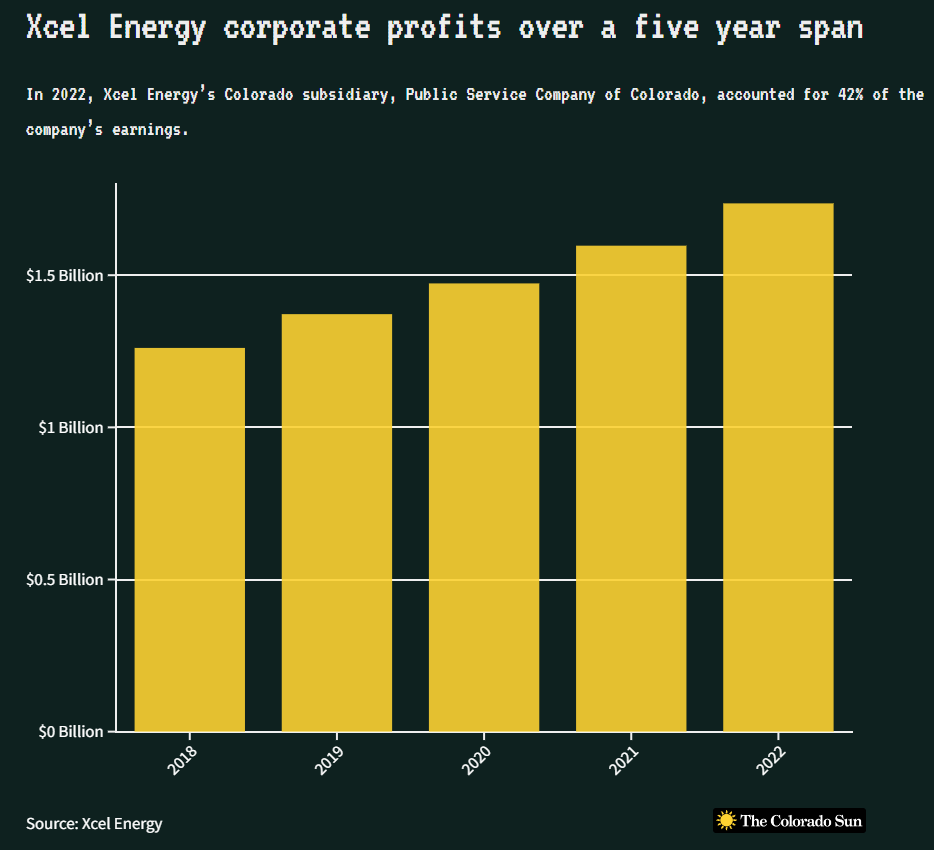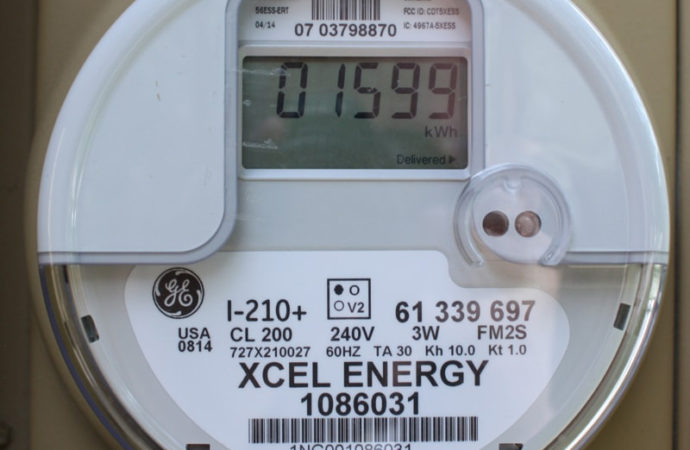Independence Institute has a long track record of warning against the unhealthy incentives that can arise from the relationship between monopoly electric utilities and green policymakers.
Once viewed as rivals of one another, the two sides realized a few years back that coexisting as fellow travelers on the road to the so-called clean energy transition is a far more lucrative proposition.
Two new reports in the Colorado Sun this week detail just how lucrative this new amicable relationship has been for Colorado’s largest electric utility, Xcel Energy, to the detriment of Colorado ratepayers.
The first piece deals with the trend of rising utility bills in Colorado. It begins with a provocative opening.
Bill Levis has tracked the ups and downs of utility bills for the past 14 years, first as director of the state Office of Consumer Counsel and then as a consultant for AARP, which represents retirees and older citizens.
And when it comes to electricity bills, especially from the state’s largest provider Xcel Energy, the trend has gone in only one direction — up.
Since 2019 the average monthly residential bill, for 600 kilowatt-hours of electricity, has risen 38% to $92.12, based on company figures. Utility bills are one of the biggest regular dings to any household’s budget, and with every Xcel announcement, the High Cost of Colorado marches upward.
“We know it is going to go even higher as we go to renewables and they phase out coal-fired plants,” said Levis, whose office was the predecessor to the Office of the Utility Consumer Advocate.
That’s a 38 percent average bill increase since progressive lawmakers secured trifecta control of Colorado state government and began accelerating the push toward a rapid statewide energy transition.
Meanwhile, renewables still only make up a little more than a third of the state’s electricity mix, according to 2022 data. To reach 100 percent by 2040, in accordance with Governor Polis’s current goal, utility bills will indeed have to go much higher still.
That’s because utilities like Xcel are government-sanctioned monopolies, meaning customers who happen to reside in their service areas have no choice but to purchase their power. In return for getting a captive customer base, Xcel agrees to have the price of the electricity it sells set by state regulators at the Public Utilities Commission.
The PUC regulators, who are political appointees, set those prices based on a “cost of service” revenue model that automatically allows utilities like Xcel to recoup the regular costs of operating and maintaining the electrical system, the costs of building any new capital assets (e.g., power plants, transmission lines, etc.), plus a guaranteed profit of around 10 percent on the costs of those assets until they’re fully paid off.
As a result, utilities like Xcel have all the incentive in the world to regularly build new power plants as long as they can get the approval of the PUC. That incentive, combined with the social license to build renewables induced by climate change, has created a match made in heaven for Xcel and its bottom line. The company’s profits have continued to hit annual records year after year as the state’s use of wind and solar has increased.

Xcel’s CO Profits 2018-2022 / Source: The Colorado Sun
Meanwhile, climate hawks in the Colorado General Assembly have realized they can steer Xcel’s natural inclinations to their advantage by using the levers of state power to turn the utility into a vessel for faster environmental “progress”—something utility watchdogs like Levis know all too well.
“The legislature has also played a role in raising bills,” Levis said. “I don’t think they realize the impact.”
In the last five years the General Assembly has passed at least 14 bills directing the state’s utilities and PUC to initiate programs to do such things as such as promote energy efficient appliances and electric vehicles, and to develop clean energy plans.
Those laws allowed utilities to do things like add charges to customer bills for new programs. Or they enabled Xcel Energy to accelerate recovery of funds or include performance incentives, offering a bonus if the utility contains project costs and meets deadlines.
And as the second Colorado Sun piece details, one of those General Assembly-mandated Clean Energy Plans has resulted in Xcel’s most jaw-dropping ask yet.
According to the Sun:
Xcel Energy has a vision for Colorado’s clean energy future — one independent power producers, consumer advocates and regulators didn’t see coming — a vision that is both expensive, with a $15 billion price tag, and unparalleled in its sweep.
Xcel Energy’s preferred electric resource plan submitted to the Colorado Public Utilities Commission in September includes 7,100 megawatts of new generation and storage, mainly wind and solar and nearly $3 billion in new transmission lines.
That’s nearly twice as expensive—with 2.5 GW more renewable capacity and $2.5 billion more in transmission spending—as what Xcel originally proposed back in 2021 when it was first required to initiate its Clean Energy Plan under state law. And it could wind up ballooning even further to the detriment of captive ratepayers across the state.
As expensive as the Xcel Energy plan is, it is likely to end up even more costly, according to the PUC staff, Accion, the consumer advocate’s office and the large-customer group.
“The company has been notoriously bad on its estimates and consistently overruns project costs by 30%, 50%, 100%,” UCA’s Pereira said. “It will never be as low as they project.”
As a result, the economic pain for utility customers is only going to get worse from here on out, as Xcel continues to pad its profits and Colorado lawmakers continue to pat themselves on the back for being so forward-thinking on climate policy.









